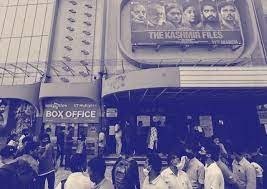Isaac Chotiner in The New Yorker:
 Earlier this year, “The Kashmir Files”—a blood-soaked historical drama with a nearly three-hour run time—became the top-grossing Hindi film since the start of the pandemic. The contested region of Kashmir has caused unending conflict between India and Pakistan. In Indian-administered Kashmir, the Army has brutally subjected Muslims to extensive human-rights violations, with tens of thousands killed, thousands of forced disappearances, and an extremely high incidence of rape—which has been used, according to Human Rights Watch, as a “counterinsurgency tactic” to “create a climate of fear.” But this film tells a different story.
Earlier this year, “The Kashmir Files”—a blood-soaked historical drama with a nearly three-hour run time—became the top-grossing Hindi film since the start of the pandemic. The contested region of Kashmir has caused unending conflict between India and Pakistan. In Indian-administered Kashmir, the Army has brutally subjected Muslims to extensive human-rights violations, with tens of thousands killed, thousands of forced disappearances, and an extremely high incidence of rape—which has been used, according to Human Rights Watch, as a “counterinsurgency tactic” to “create a climate of fear.” But this film tells a different story.
Beginning in 1989, amid an uprising of the state’s Muslim majority following a rigged election, more than a hundred thousand Kashmiri Pandits, a Hindu community, fled from their homes; as many as several hundred were killed. The film, which very clearly frames these killings as a genocide, is cross-cut between the fleeing and terrorized Pandits and a story line in the present day, during which a young Indian man challenges leftist college professors to tell the truth about what happened to his Pandit family.
More here.
